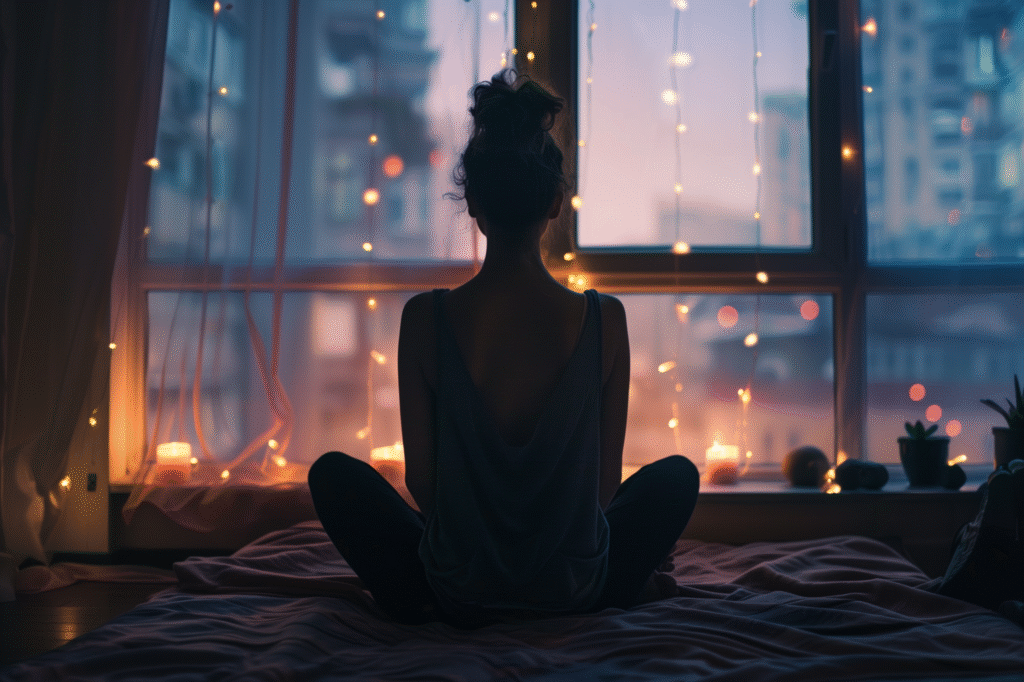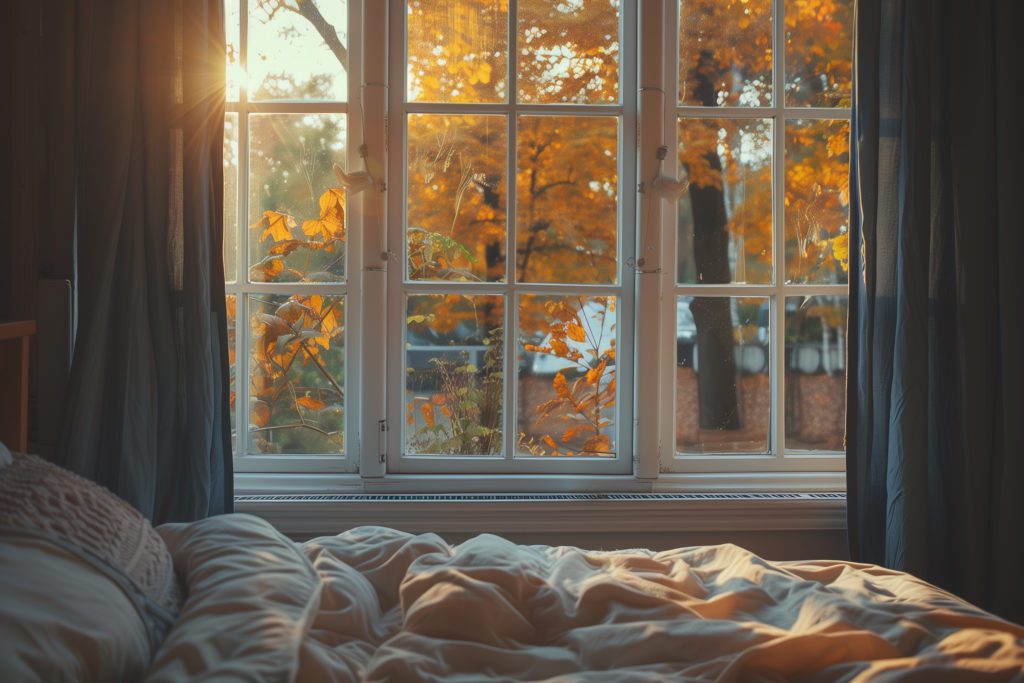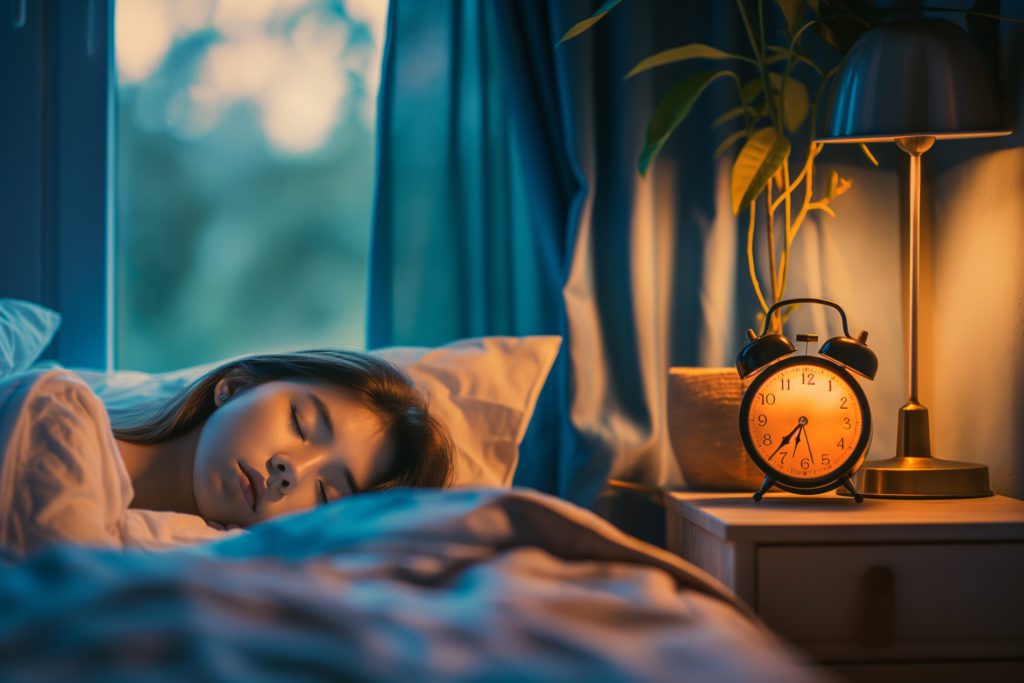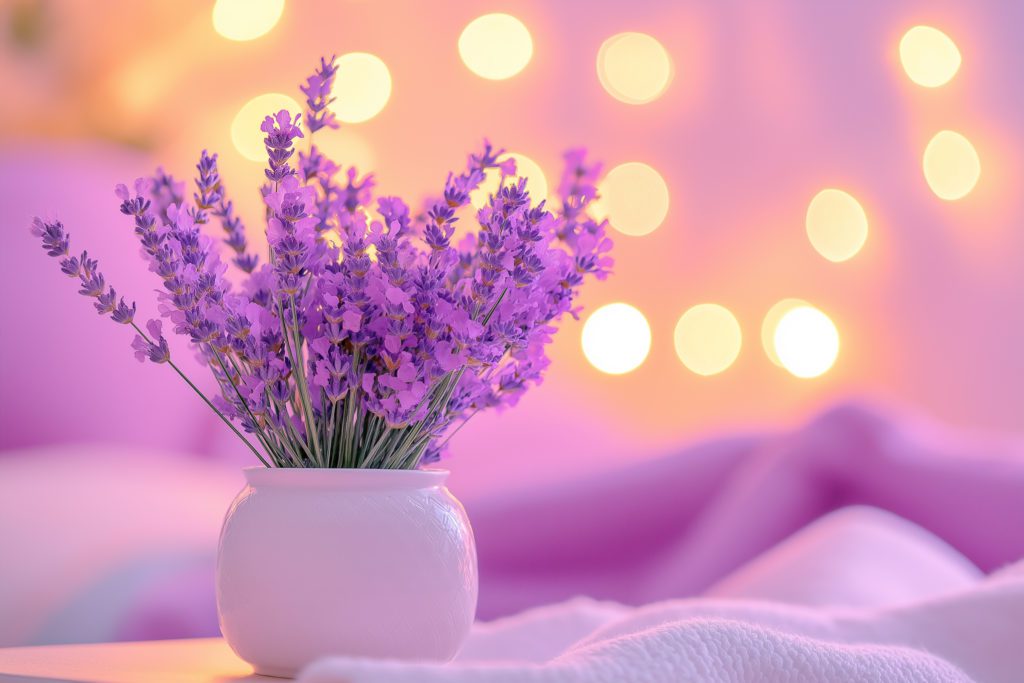
Embracing Cozy Autumn Evenings: Sleep-Friendly Evening Routines
Autumn evenings are marked by warmth and coziness. You’ll want to create a new sleep routine that embraces the season and helps you get plenty of rest.

Autumn is the season for hibernation. We receive less exposure to sunlight, which increases the production of melatonin, the hormone that regulates our sleep cycle. This makes us feel sleepier and more lethargic during the fall and winter months.
Also, our circadian rhythm (aka 24-hour clock) can get thrown off in the fall due to changes in light. Our circadian rhythm is controlled by sunlight. Because there is less sunlight in the fall it affects our internal clock. This may cause an increase in REM sleep.
Why Autumn Sleep Routines Are So Important
Science has found that sleep habits and activity change with the seasons. The shorter days and longer nights will affect your sleep. Therefore, your sleep routine should change when the leaves start turning colors.
An autumn-friendly sleep routine will help you get better sleep. Adults need between seven to nine hours of sleep a night, no matter the season. Making sure you get the sleep you need is vital to your mental and physical well-being. Sleep plays a crucial role in hormone regulation, memory, and tissue repair. Getting enough sleep can make it easier to lose weight and cope with stress.
A Cozy Autumn Sleep Routine
Getting a good night's sleep during autumn all comes down to having a cozy fall sleep routine. If you embrace a fall sleep routine, it can pay off in the form of better sleep.
Start by creating a new fall bedtime schedule. In the fall, you will need more sleep. Therefore, you’ll want to set a new bedtime schedule. Pinpoint the best schedule for you and then track your sleep using Pillow. Try to follow the same sleep schedule consistently — even on the weekends.
After you have your sleep schedule down, embrace the early autumn darkness and use that as a cue to begin winding down. Next, think about some things that you want to include in your sleep routine. Here are some tips for your autumn sleep routine.
- Enjoy a warm cup of chamomile tea - Chamomile tea has a calming effect. That’s because it contains an antioxidant that promotes sleep. If you don’t like chamomile, you can try lavender tea instead. Lavender tea is also known for its soothing and calming properties.
- Get out some cozy scents - Try a sleep-promoting aromatherapy scent like cedarwood or bergamot. These scents create a cozy ambiance. They may help promote relaxation and help you drift off to sleep. Place a drop of one of these scents on a cotton ball. Then, put the ball under your pillow an hour before bed.
- Don’t crank up the heat - When it starts getting cooler at night, you might be tempted to turn up the heat or throw on heavy flannel pajamas to be as cozy as possible. However, this can impact your sleep. The best temperature to sleep at is between 60 and 65 degrees Fahrenheit. Experts say that humans sleep better at this temperature. So, leave the heat on low. This will help you to get more restorative sleep.
- Use a humidifier - In colder climates, people may start turning on the heat during the fall. The dry air can leave your throat and sinuses dry. This can make it much harder to achieve a good night’s sleep.
- Take a warm shower - Studies have found that taking a warm shower before bed can help you fall asleep quicker. A warm shower before bed will also moisten your nasal passages, which can get dry with the cooler fall air.
- Consider a sunrise alarm clock - These alarm clocks simulate dawn and dusk to help you wake up naturally. A sunrise alarm clock can be especially helpful if you have to wake up before dawn to go to work. It can be impossible to get out of bed on those dark, chilly mornings. A sunrise alarm can make you feel less sluggish and make getting out of bed so much easier.
- Do something relaxing to wind down - You can listen to an audiobook or sleep stories on Pillow, turn on calming music, or enjoy a bedtime podcast. These activities will help you relax and prepare for sleep.
- Don’t eat a large meal close to bedtime - When the weather turns cooler, the cravings for comfort food start. You might want to rethink that late-night pumpkin mac and cheese. Eating large amounts of food, especially heavy comfort food can cause indigestion and disrupt your slumber. Not only that, but it can lead to weight gain according to Northwestern University researchers.
Don’t Forget About Your Days
Besides having a solid fall sleep routine, there are some things that you’ll want to do during the daytime to improve your sleep.
Make sure you go outdoors for a few minutes each day while the sun is out. The earlier, the better. You could go for a brisk morning walk or sit outside on the porch. Getting enough sun exposure during the day will help you sleep better at night. It will also help boost your vitamin D levels. Vitamin D plays a critical role in sleep. It also helps you feel more alert during the day.
Also, make sure you get at least 30 minutes of exercise a day. People tend to abandon exercise routines starting in the fall. The colder weather can make it harder to feel motivated to work out. But, exercising will help you drift off to sleep more easily at night. It can also help improve your sleep quality. You don’t have to do a long difficult workout either. It can be something as simple as taking a walk. You can use an exercise tracker like an Apple Watch or Fitbit to keep track of how much you are exercising during the fall.
Get the Best Sleep During the Cozy Fall Nights
It’s normal for your sleep habits to change during the autumn. Adapting your sleep schedule and routines for the fall can help keep your circadian rhythm in check and lead to a better night’s sleep.
FAQ
Why do I struggle to get out of bed when it’s cold and dark outside?
Mornings feel tougher when it’s chilly and the sun isn’t up yet. Try warming up your room slightly before waking, setting a sunrise alarm, or placing something comforting (like a soft robe or warm drink) within reach to make getting up feel less brutal.
Why do some people experience more vivid dreams in autumn?
The increase in REM sleep during fall, combined with changes in melatonin levels and circadian rhythms, may contribute to more intense or memorable dreams. Keeping a dream journal can be a fun way to explore sleep patterns.
How does seasonal affective disorder (SAD) impact sleep patterns?
SAD, a form of depression triggered by seasonal changes, can cause excessive sleepiness, fatigue, and difficulty waking up in the morning. Light therapy, outdoor exposure, and maintaining a consistent sleep schedule can help regulate sleep patterns.
Is it normal to feel lonelier in the fall?
Yes, and it’s actually pretty common. The shift to shorter days and more indoor time can make social connections feel distant. If you’re feeling isolated, schedule cozy hangouts, send voice notes to friends, or create a simple evening ritual that feels comforting.
How can I fully embrace fall coziness without wrecking my sleep schedule?
Enjoy the seasonal vibes in a way that supports rest—dim lights, soft blankets, warm herbal tea, and a good book. Just skip the late-night caffeine, never-ending Netflix marathons, and midnight pie cravings (at least most nights).

Written by
Emily Mendez
Emily Mendez is a former therapist and mental health author. She is one of the leading voices in mental health. Emily's writing has appeared in eCounseling, SonderMind, and more. Emily is frequently interviewed by Healthline, Fatherly, INSIDER, Family Circle, and other national media for her advice and expert opinion on the latest mental health topics.
Download Pillow
Get help
Press & News
Legal
Connect
X (Twitter)
Company
Copyright © Neybox Digital Ltd.



